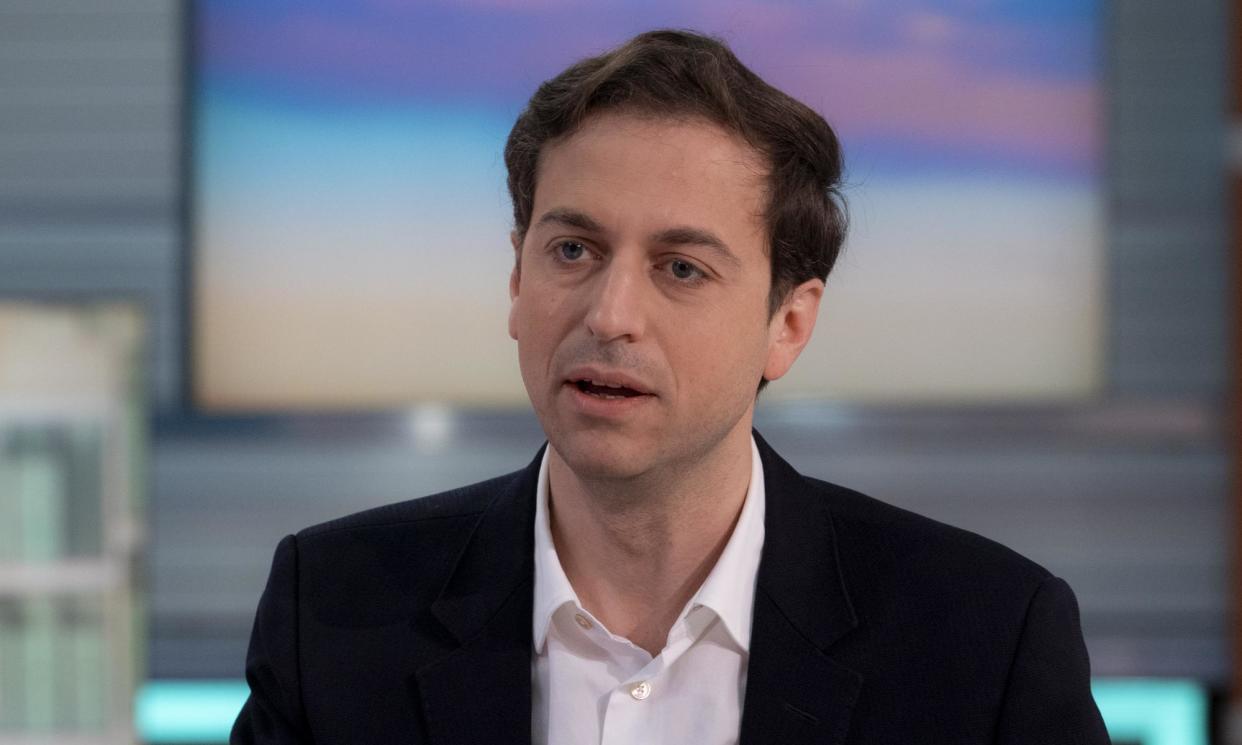Home Office considered antisemitism campaigner for counter-extremism unit

The Home Office considered appointing campaigner against antisemitism Gideon Falter as an adviser to its counter extremism unit but was warned against the appointment by the government’s antisemitism tsar.
The Guardian understands there were strong objections to Falter being offered the part-time civil service role advising the Commission for Countering Extremism (CCE) in 2022 and that John Mann told the then home secretary Suella Braverman he would quit if Falter was offered the post.
Falter, chief executive of Campaign Against Antisemitism (CAA), said he was approached for the role by the unit’s commissioner but never applied or was formally offered it – and that he believes no similar role was ever created.
Falter has been in the spotlight after being told by a police officer that he risked antagonising pro-Palestinian protesters because of his “openly Jewish” appearance. Braverman, now a backbencher, had called for the Metropolitan police commissioner Mark Rowley to resign over the incident.
A longer version of the exchange showed the officer explaining he was concerned Falter was trying provoke a confrontation with marchers. Rowley has apologised for the language used, but defended the officer’s overall conduct.
In a letter seen by the Guardian, Mann warned the Home Office that he feared that giving Falter the role would hinder cooperation with the main body responsible for monitoring antisemitism – the Community Security Trust (CST). The CCE is an arm’s-length body that says it makes independent appointments.
Mann, a former Labour MP who is the government’s antisemitism tsar as a non-affiliated peer, wrote to the CCE chief, Robin Simcox, claiming that Falter was not an appropriate person for the role.
The letter obtained under FoI from the office of the antisemitism tsar does not name Falter directly but makes it clear that he considers his appointment to be divisive within the Jewish community.
Mann stated he spoke to the main Jewish communal bodies who did not know about the intention to appoint Falter. “None of them were consulted on this, nor knew of the role and its advertising. This is not good for the reputation of Government,” he wrote.
Mann said it would be better for an adviser to come from within CST to have the necessary expertise and claimed Falter’s appointment risked alienating the body.
He said he was “concerned that there may be potential conflicts of interest” with the preferred candidate, citing “referring current members of parliament for disciplinary action by their own party” – a reference to CAA’s action against a number of Labour MPs.
“The CST has the expertise that you seek, it carries out this research already. It shares it recurrently with the operation leads dealing with these threats, it represents the United Kingdom at every significant academic forum and international political meeting on this and it is to them that you must turn to for this expertise,” Mann wrote.
“To do anything else is, in my judgment, dangerous. You will hear my strength of feeling.”
Falter told the Guardian: “These claims show a lack of understanding of how the Jewish community works. CAA works closely with CST, Shomrim [a volunteer-led security group that works with the strictly Orthodox Jewish community] and numerous other organisations.
“As part of our work we make complaints against antisemites in all walks of life, and it would be strange if we did not call for disciplinary measures where we have concerns about MPs – it is our job to hold such people to account. Our concerns about the Labour party, for example, led us to refer them to the Equality and Human Rights Commission, which vindicated our complaint.
“A couple of years ago, Robin Simcox was contemplating putting together a panel of advisers to the government on issues relating to extremism, and he asked me whether I would be interested in advising on antisemitism which, given my work fighting antisemitism, was not out of the ordinary. I did not apply for any role, and do not believe that the role relating to antisemitism was ever created and I did not pursue the matter.
“There was no communication at any point with Suella Braverman, Michael Gove, or any other government minister or their teams about this role, nor was there any communication with the government’s outgoing antisemitism adviser.”
CST, which was one of the bodies that met Rowley this week to discuss the Falter incident, issued a carefully worded statement in response that praised the overall police response to the protests while criticising the officer’s use of language.
“Despite all the good work, there have also been mistakes which set everything backwards and stick in the public mind as further showing how bad things are right now. This latest case fits that profile, with the context and detail lost in the heat of controversy.”
A spokesperson for the CCE said it was “a non-statutory expert committee of the Home Office which operates independently, at arm’s length from government.
“The CCE retains a number of subject matter experts on extremism to complement the work of its secretariat.
“The CCE is committed to tackling all forms of extremism and engages widely across Jewish communities as part of our ongoing efforts to combat modern manifestations of antisemitism. We will continue to do so.”


